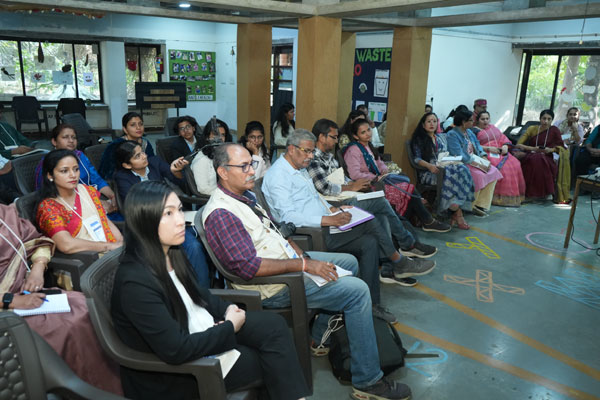Building Sustainable Campuses: Empowering Institutions for Environmental Leadership
and Action
As microcosms of society, Campuses have the unique opportunity to model sustainability through
resource efficiency, eco-friendly infrastructure, and community engagement. Thus, building
sustainable campuses is a vital step toward aligning educational institutions with the global priorities
of the Sustainable Development Goals (SDGs), particularly SDG 4 (Quality Education), SDG 13
(Climate Action), and SDG 11 (Sustainable Cities and Communities). The Greening Education
Partnership (GEP) emphasises embedding sustainability into learning environments, fostering eco-
consciousness and skills among students.
Sustainable campuses serve as living laboratories, encouraging youth to lead initiatives, make
informed decisions, and develop entrepreneurial solutions for environmental and social challenges.
By integrating green practices, institutions nurture future leaders capable of driving meaningful
change, contributing to a resilient, inclusive, and sustainable future.
The session focused on promoting environmental actions and sustainability within educational
institutions. Its objectives aimed to address critical challenges through a collaborative, action-
oriented approach. The session served as a roadmap for integrating sustainability into campus
operations, curriculum, and community engagement to inspire meaningful change.
These objectives included identifying and analysing key environmental challenges faced by
campuses; exploring actionable strategies for campus sustainability, with a focus on energy
management, waste reduction, biodiversity enhancement, and water conservation; encouraging the
active participation of students, faculty, and stakeholders like architects, policymakers, and local
authorities in sustainability initiatives; and sharing successful case studies from institutions leading
the way in sustainable campus operations.
Speakers
Mr Balamurugan Ratha Krishnan,
Green Growth Asia Foundation, Malaysia
Dr Minu Agarwal,
CEPT University, Ahmedabad
Dr Atsufumi Yokoi,
Okayama University, Japan
Ms Shruti Nangia,
Bharat Soka Gakkai, Delhi
Key Recommendations from the Session
1. Institutional Integration
- Institutions should integrate sustainability principles across teaching, operations, and
campus activities to align with SDG Target 4.7 and create cohesive strategies for
environmental leadership.
- Campuses should adopt energy-saving measures such as installing solar panels and energy-
efficient appliances, monitor air quality, and implement water conservation techniques like
rainwater harvesting.
- Waste management practices like segregation, composting, and reducing waste should be
emphasised alongside the creation of biodiversity-friendly spaces, such as kitchen, butterfly,
and herbal gardens.
- Regular green audits should be conducted to assess sustainability performance and track
progress.
- Institutions should invest in teacher training and capacity-building programmes to empower
educators to lead sustainability initiatives effectively.
2. Curriculum Integration
- Students should be encouraged to take leadership roles in sustainability efforts, fostering a
sense of ownership and responsibility.
- Environmental education should be integrated into the curriculum, using inquiry-based
learning to address real-world sustainability challenges.
- Interdisciplinary approaches should be developed to link sustainability concepts to subjects
like science, math, and geography.
- Educational institutions should use technology, such as digital tools, expert databases,
reporting formats, and e-newsletters, to enhance sustainability education and monitor
progress.
- Interactive platforms, gamified learning tools, and data collection technologies should be
employed to engage students and improve environmental literacy.
3. Community Involvement
- Schools and universities should involve local communities in sustainability efforts, expanding
the impact of environmental programmes beyond campus boundaries.
- Collaboration with stakeholders, including governments, NGOs, and local organisations,
should be prioritised to achieve broader sustainability goals.
4. Value-Based Education
- Sustainability programmes should emphasise the importance of value-based education to
inspire sustainable behaviours among students, staff, and communities.
5. Action-Oriented Activities
- Activities such as competitions, exhibitions, and action-oriented projects should be designed
to instill sustainable practices in everyday life.
- Institutions should encourage research on sustainability challenges, such as reducing carbon
emissions, improving energy efficiency, and minimising waste.
- Students and educators should collaborate to develop innovative proposals and solutions for
addressing real-world environmental issues.
- Institutions should advocate for supportive policies that promote sustainability, such as
green building codes and energy conservation mandates.
6. Financial Support and Partnerships
- Financial support from partnerships and funding opportunities should be sought to
overcome financial constraints and support long-term sustainability initiatives.







